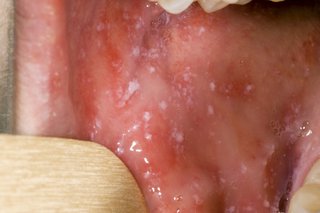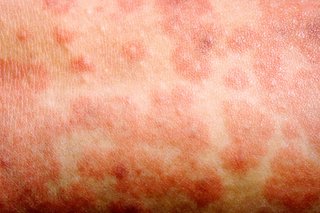If You Have Had Measles as a Child Can You Get It Again
Measles is a highly infectious viral illness. Measles starts with cold-like symptoms that develop about 10 days after you get infected. You will then get a measles rash a few days later.
The illness usually lasts 7 to 10 days.
Get the measles, mumps and rubella (MMR) vaccine to avoid catching measles. Do not get the vaccine if you are pregnant. Avoid trying to get pregnant for 1 month after the vaccine.
When you have had measles, your body builds up resistance (immunity) to the virus. It's highly unlikely you'll get measles again.
Check if it's measles
The first symptoms of measles are:
- cold-like symptoms such as aches and pains, a runny nose, sneezing and a cough
- sore, red eyes that may be sensitive to light
- a temperature of 38 degrees Celsius or above (fever), which may reach around 40 degrees Celsius
- small greyish-white spots in your mouth
- loss of appetite
- tiredness, irritability and a general lack of energy
Urgent advice: Contact your GP as soon as possible if:
- you think you or your child have measles
Spots in your mouth

Many people with measles develop small greyish-white spots in their mouths. These appear before the rash.
Not everyone with measles has these spots. If you have them with other symptoms or a rash, it's highly likely you have measles.
The spots usually last for a few days.
The measles rash

The rash appears around 2 to 4 days after the first symptoms. It fades after about a week.
You will feel most ill on the first or second day after the rash develops.
The rash:
- is made up of small red-brown, flat or slightly raised spots - these may join together into larger blotchy patches
- usually first appears on the head or neck and then spreads outwards to the rest of your body
- is slightly itchy for some people
The rash can look like other childhood conditions, such as slapped cheek syndrome, roseola or rubella.
It's unlikely to be caused by measles if you have been fully vaccinated or had measles before. You need 2 doses of the MMR vaccine to be fully vaccinated.
How to treat measles
To relieve the symptoms of measles:
- take paracetamol or ibuprofen for the fever, aches and pains
- drink plenty of water to avoid dehydration
- close the curtains to help reduce light sensitivity
- use damp cotton wool to clean under your eyes
Important
Do not give aspirin to children under 16 years old.
In severe cases, you or your child may need to be admitted to the hospital for treatment.
Urgent advice: Contact your GP or maternity hospital urgently if:
- you are pregnant and you think you might have measles
Non-urgent advice: You should see your GP if
you have been in close contact with someone who has measles and you have not:
- been fully vaccinated with 2 doses of the MMR vaccine
- had the infection before
Do this even if you do not have any symptoms.
Call your GP's surgery before your visit, as they may need to make arrangements to reduce the risk of spreading the infection.
Stop measles spreading
To reduce the risk of spreading the infection to others, avoid:
- work, school or childcare for at least 4 days from when you first developed the measles rash
- contact with young children and pregnant women
Stay off childcare, school, work for at least 4 days from when the rash first appears.
If your child is in childcare or school, tell them if your child develops measles. Children in your child's group or class may need to be vaccinated if they are not fully vaccinated against measles.
How to avoid getting measles
You or your child can avoid getting measles by having the measles, mumps and rubella (MMR) vaccine.
This is given in 2 doses as part of the HSE childhood vaccination programme.
The first dose is given when your child is 12 months old by your GP. The second dose is given to junior infants (5 to 6 years old) in school. GPs give the second dose in Donegal, Sligo and Leitrim.
Contact your GP to find out if your child's vaccinations are up-to-date.
You or your child can be vaccinated at any time if you have not been fully vaccinated before. If you're not sure of your vaccination history, having the vaccine again will not cause any harm.
Important
Do not get the MMR vaccine during pregnancy. Avoid getting pregnant for 1 month after you get the MMR vaccine.
Read more about the measles vaccine
Read more about vaccines you need before you get pregnant
If you're at risk of catching measles
A treatment called human normal immunoglobulin (HNIG) can be used if you've come in close contact with someone with measles. It should be given within 6 days of exposure.
HNIG is recommended for people in the following groups:
- babies under 6 months of age
- pregnant women who have not been fully vaccinated or have not had measles before
- people with weak immune systems - for example, those with HIV or people receiving treatment that weakens their immune system (for example leukaemia)
Complications of measles
Measles can be unpleasant but will usually pass without causing any further problems.
People more at risk of having complications include:
- babies younger than 1 year old
- children with a poor diet
- children with a weakened immune system, such as those with leukaemia
- teenagers and adults
Children who are older than 1 year have the lowest risk of developing complications.
Common complications
More common complications of measles include:
- diarrhoea and vomiting, which can lead to dehydration
- middle ear infection, which can cause earache
- eye infection (conjunctivitis)
- inflammation of the voice box (laryngitis)
- pneumonia, bronchitis and croup. These are infections of the airways and lungs
- fits caused by a fever (febrile seizures)
Uncommon complications
Less common complications of measles include:
- liver infection (hepatitis)
- misalignment of the eyes (squint) if the virus affects the nerves and muscles of the eye
- infection of the membranes surrounding the brain and spinal cord (meningitis)
- infection of the brain itself (encephalitis)
Rare complications
In rare cases, measles can lead to serious eye disorders such as an infection of the optic nerve. This is the nerve that transmits information from the eye to the brain. This is known as optic neuritis and can lead to vision loss.
Measles can also lead to:
- heart and nervous system problems
- a fatal brain complication called subacute sclerosing panencephalitis (SSPE). This can occur several years after measles. This is very rare.
Pregnancy complications
If you're not immune to measles and you become infected while you're pregnant, there's a risk of:
- miscarriage or stillbirth
- your baby being born prematurely – before the 37th week of pregnancy
- your baby having a low birth weight
Important
If you think you were in contact with someone with measles, contact your GP as soon as possible. They can tell you about treatment to reduce your risk of developing measles.
Content supplied by the NHS and adapted for Ireland by the HSE

Source: https://www2.hse.ie/conditions/measles/
0 Response to "If You Have Had Measles as a Child Can You Get It Again"
Post a Comment